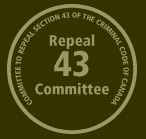![]()
Sometimes life breaks your heart
Toronto Star, JOE FIORITO, December 3, 2004
And then one of the neighbours reaches for a knife and there is sudden terror and there is dark red madness. I don't pretend to understand, but this must be part of what it means to be human. We are weak, we are frail, and some of us snap like twigs.
I was coming home on the subway late the other night. I was immersed in a book, and got off at the wrong stop by mistake. I stepped onto the platform and saw two paramedics tending an old man who had collapsed. The paramedics were bandaging the man's fingertips. I have no idea what sort of accident would hurt just the tips of a man's fingers.
The old man seemed incapable of sitting up straight. Every time he rolled over, the paramedics propped him up again. And then the old man said, or slurred, that he'd had a seizure. The only thing he'd seized was a nearby bottle of mouthwash. The paramedics took him to the hospital. This, too, is what it means to be human. We are weak and we are frail and some of us fall like leaves.

The houses along Concord Ave. are old and solid, for the most part, though some of them could use a little work; the bricks, the eaves, the windows, the porches. There is a stuffed moose head mounted by the front door of one of the houses a block away, Christmas lights strung along the antlers.
Make of that what you will.
There were a couple of cop cars pulled up in front of 516 Concord yesterday afternoon; news trucks parked nearby; flowers and stuffed animals laid out along the fence.
And there was a moving van; 516 is a semi, and there was a boy from Quebec moving in next door. "I just want peace," he said. He was moving a table. That's all any of us wants. We just want peace. We don't always find it.
A friend phoned the other morning. I was home and she was on her cell. She'd just passed a man sitting under a tarpaulin at the corner of Elm and University. He was sitting on a grate. The rain was pouring down. The man was naked under the tarp.
My friend said she'd alerted the concierge of a nearby office building but the concierge didn't seem to care. She'd gone to the nearest police station, but they didn't seem to care, either. She called me.
I called a friend who drives a rescue van.
The friend who drives the van said he'd swing by and have a look. He called me back later to say the man seemed in pretty good shape for a guy on a grate under a tarp in the pouring rain. He said the man wasn't wearing a shirt because there was plenty of heat coming up from the grate. That, too, is what it means to be human. We are naked underneath it all. We try to stay warm and dry.
Sometimes it's not enough.
Back on Concord Ave., one of the neighbours from across the street came out in the cold and watched the police do their work. She shook her head and said, "For me, they were nice persons, the two of them walking together, beautiful persons for sure." But then something went horribly wrong.
I asked the woman if she'd put any of the flowers along the fence. She gave me a quick hard look, as if I'd insulted her. "Did you bring flowers? Where are your flowers?" I should have kept my mouth shut.
What does it mean?
I have no idea.
I know of a man who died in his apartment late last spring. He came here on his own from India; my age, but with no family and no friends here. And then one day the man had a heart attack and he died alone, and he was not discovered until someone unlocked his door during a routine building inspection six months later. Six months; make of that what you will. I don't know anything any more. We are surrounded, and we are alone.
I was walking along Danforth Ave. one afternoon earlier in the week. I stopped in a bookstore and bought a novel to read on the subway going home; the novel that would later cause me to get off at the wrong stop. The sticker price on the book was $21.95. The man said, "Give me $11." I did a double-take. "Has anarchy broken out at last? Has the system finally collapsed?" Yes, I speak like that on occasion.
The man in the bookstore said, "It is a sale, all books half price. You didn't see the sign?" I hadn't seen it. I gave him $15 and I told him to keep the change. He protested. I told him I was an anarchist. He laughed.
I don't know what it means.
As I was walking away from Concord Ave. last night, I bumped into the woman who hadn't put any flowers along the fence. She had been to the corner store. She had a bouquet in her hand.
"These are my flowers," she told me.
"I'm going to put them." On her face, such a sad smile. I guess this is what it means.
Some of life breaks all our hearts.
And some of us put flowers.








